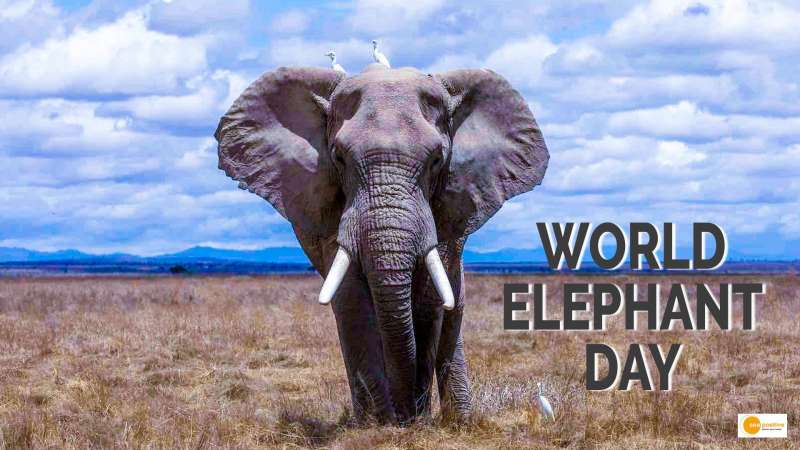

World Elephant Day is celebrated on August 12th, and it personifies prehistoric beauty, theological significance, and environmental importance. Elephant populations have declined by 62% in the last decade, and they may be extinct by the end of the next decade.
Poachers are estimated to kill 100 African elephants every day. The Asian market’s desire for ivory has resulted in the slaughter of thousands of elephants. World Elephant Day was established to raise awareness and effect change in order to save these magnificent creatures. Since its inception in 2012 by Patricia Sims and the Elephant Reintroduction Foundation of Thailand, in collaboration with over 100 elephant conservation organisations worldwide, World Elephant Day has reached millions of people who care about elephants and want to help in any way they can.
World Elephant Day is a day when organisations and individuals can come together to raise awareness about the issues that threaten elephants.
This powerful global movement provides a means to establish and support conservation solutions that will make the world a safer place for elephants and their habitats, allowing future generations to appreciate them.
Let us join forces on August 12 for World Elephant Day 2021 to help save and protect elephants from the numerous threats they face.
History of World Elephant Day
Elephants and humans have come a long way together over the course of history. The African elephant has largely avoided captivity and domestication due to the vastness of its natural environment, as well as its size and threatening posture. The Asian elephant, on the other hand, has lived alongside humans for over 4,000 years and is associated with a wide range of cultural and spiritual practises. Elephants, for example, are a national icon in Thailand, with a national holiday dedicated entirely to them, and they can even receive a royal title from the king.
Despite all of this, we still don’t know much about elephants. They have the largest brain of any land animal, making them intelligent, conscious, social, and empathetic — qualities we humans strive for.
Elephants and humans share many characteristics, and they may be more similar to us than any other animal. However, we are jeopardising their future and endangering their vital biodiverse habitats throughout Asia and Africa.
Elephants are a keystone species for their environments since they promote healthy ecosystems and encourage biodiversity. As the World Elephant Day website says, “To lose the elephant is to lose an environmental caretaker and an animal from which we have much to learn.”
We can save elephants by enforcing stronger local and international protection policies and legislation for wild elephants against poaching and the illegal trade of ivory, promoting better management of their natural habitats, educating people about the elephant’s vital role in ecosystems, improving the treatment of elephants in captivity, and, if necessary, reintroducing captive elephants into wildlife reserves to allow a natural replenishment of endangered populations. These are just a few of the goals of various elephant conservation organisations worldwide.
Elephants are running out of space and time. We have to work together to prevent senseless poaching and the trafficking of ivory, and establish protected natural sanctuaries in which elephants and other wildlife can thrive — before it’s too late and they’re all gone.
5 FUN FACTS ABOUT ELEPHANTS
1. Their tusks are teeth
Elephant tusks are actually enlarged incisor teeth that first appear when elephants are around two years old.
2. They eat a Lot
Elephants need up to 150 kg of food per day — that equals about 150 bags of chips!
3. Endangered elephants
The Asian elephant is an endangered species with less than 40,000 remaining worldwide.
4. Threatened elephants
The African elephant is threatened with less than 400,000 remaining worldwide.
5. Missing elephants
There were over 100,000 elephants in Thailand at the beginning of the last century — today, there are less than 4,000.


